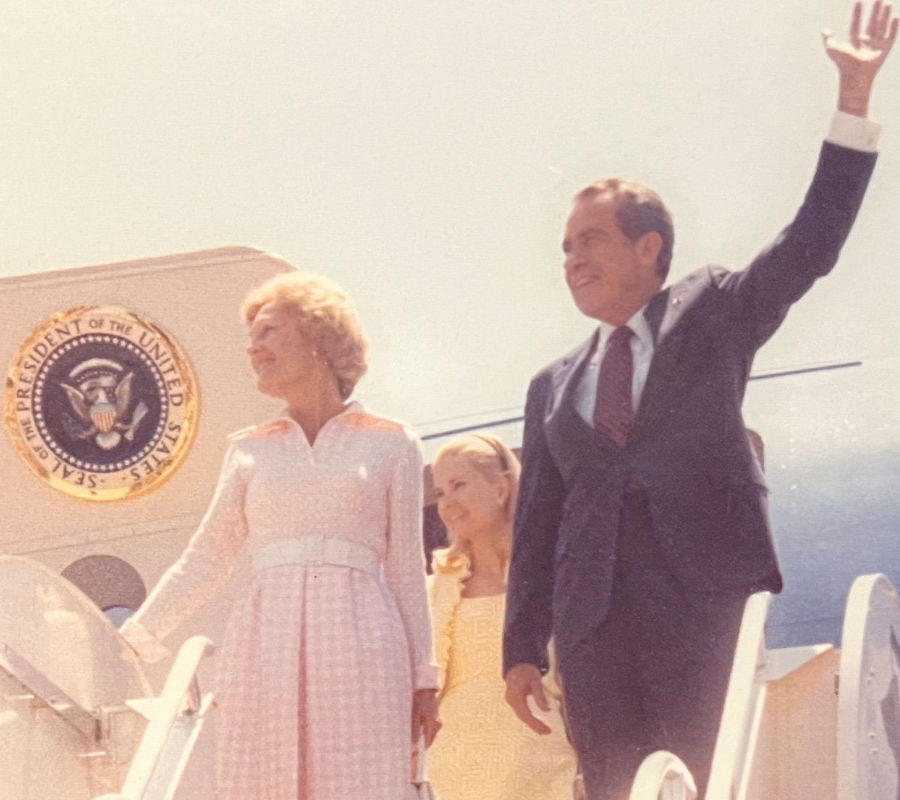Richard Nixon resigned the Presidency on August 9, 1974, and returned with his family to their home in San Clemente, California. He was greeted at the El Toro Marine Corps Air Station by thousands of loyal supporters. But this homecoming marked the beginning of one of the darkest and most difficult chapters of his life.
On the morning he resigned the Presidency, Nixon went to the East Room to say goodbye to his White House staff and other members of his administration. He spoke informally and from the heart, wanting to reach out personally to the men and women who had worked so hard for him and to help achieve his vision. He spoke to them of his parents, of where he'd come from, and of the incredible highs and lows of the journey he'd taken.
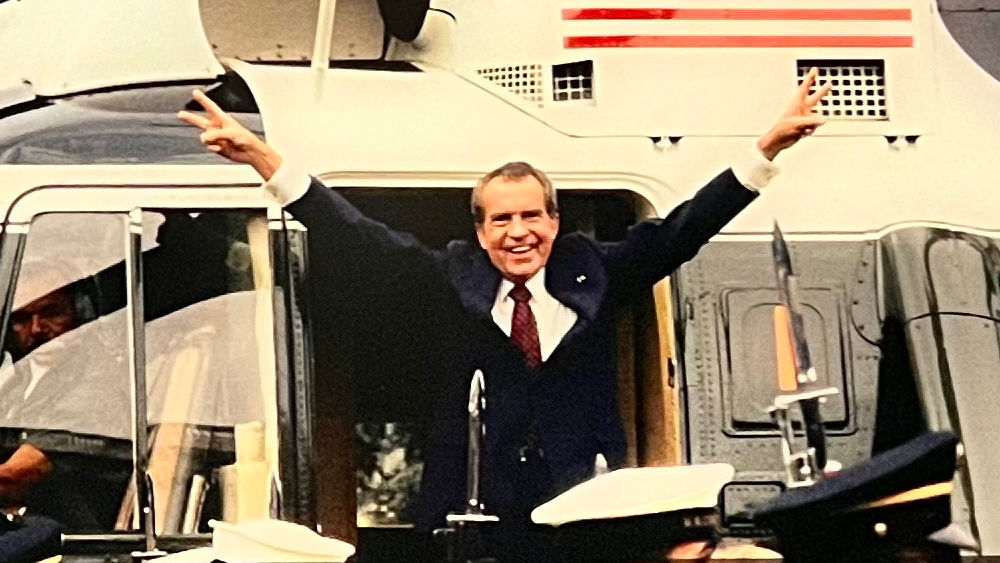
- Just before boarding Army One, the Presidential helicopter that would take the Nixon's on the first leg of their journey home to California, the President offered a final iconic salute.
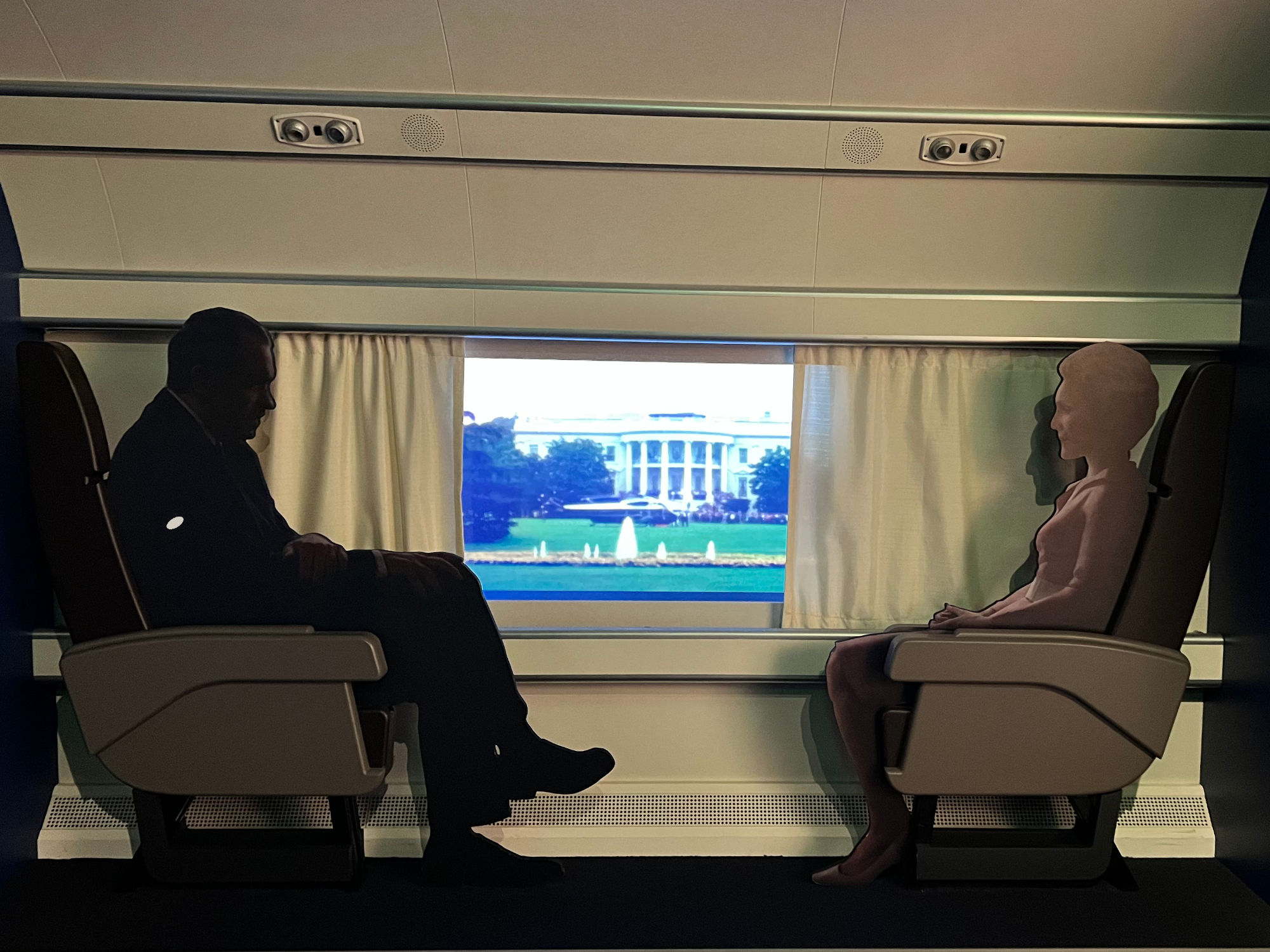
There was no talk. There were no tears left. I leaned my head back against the seat and closed my eyes. I heard Pat saying to no one in particular, "It's so sad. It's so sad."
This time, as compared with the other crises I had endured, I could see no reason to live, no cause to fight for. Unless a person has a reason to live for other than himself, he will die - first mentally, then emotionally, then physically.
- Richard Nixon, In The Arena
In 1977, a series of videotaped interviews with British TV personality David Frost provided an opportunity for Nixon to answer the tough questions - not just on Watergate, but on Vietnam and the other challenges of his Presidency.
With the publication of his memoirs in 1978, Nixon began to look toward reentering public life and continuing to work to build a more peaceful world.
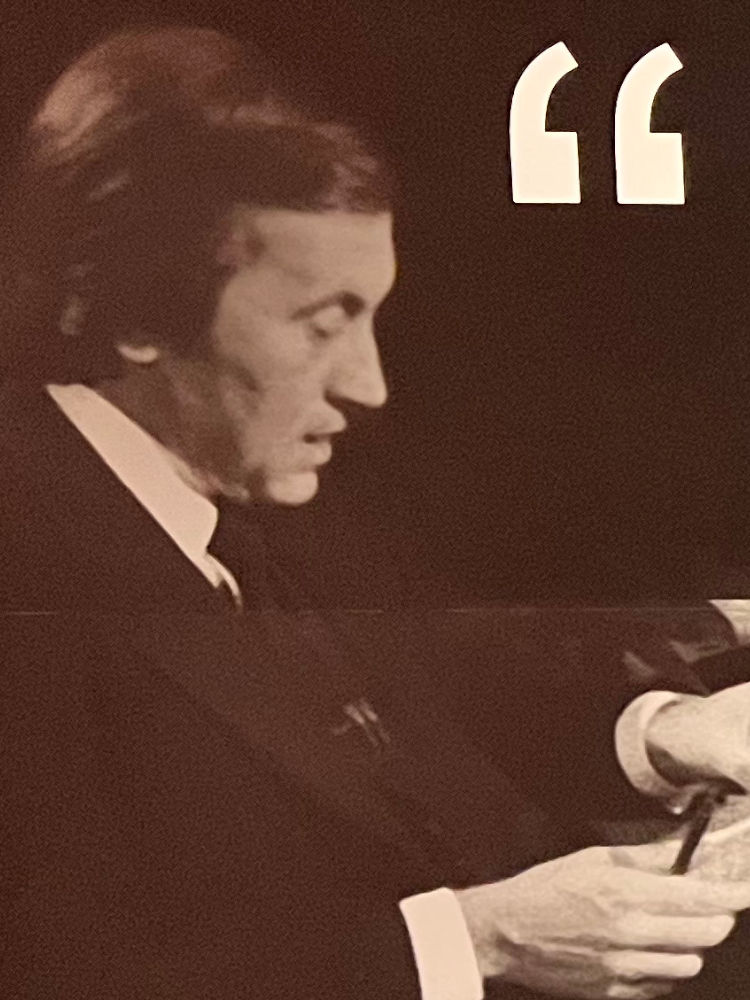
- May 5 Interview
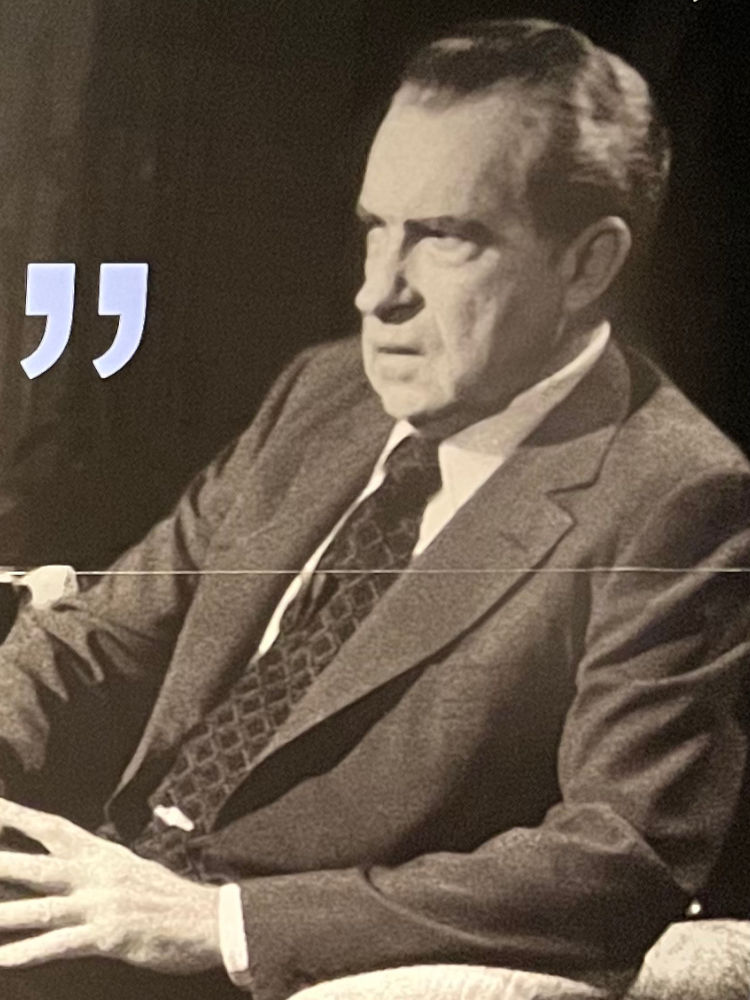
- May 5 Interview
I let down my friends, I let down the country, I let down our system of government and the dreams of all those young people that ought to get into government but will think it is all too corrupt... And I have to carry that burden with me for the rest of my life.
- From the Interview Airing May 5, 1977
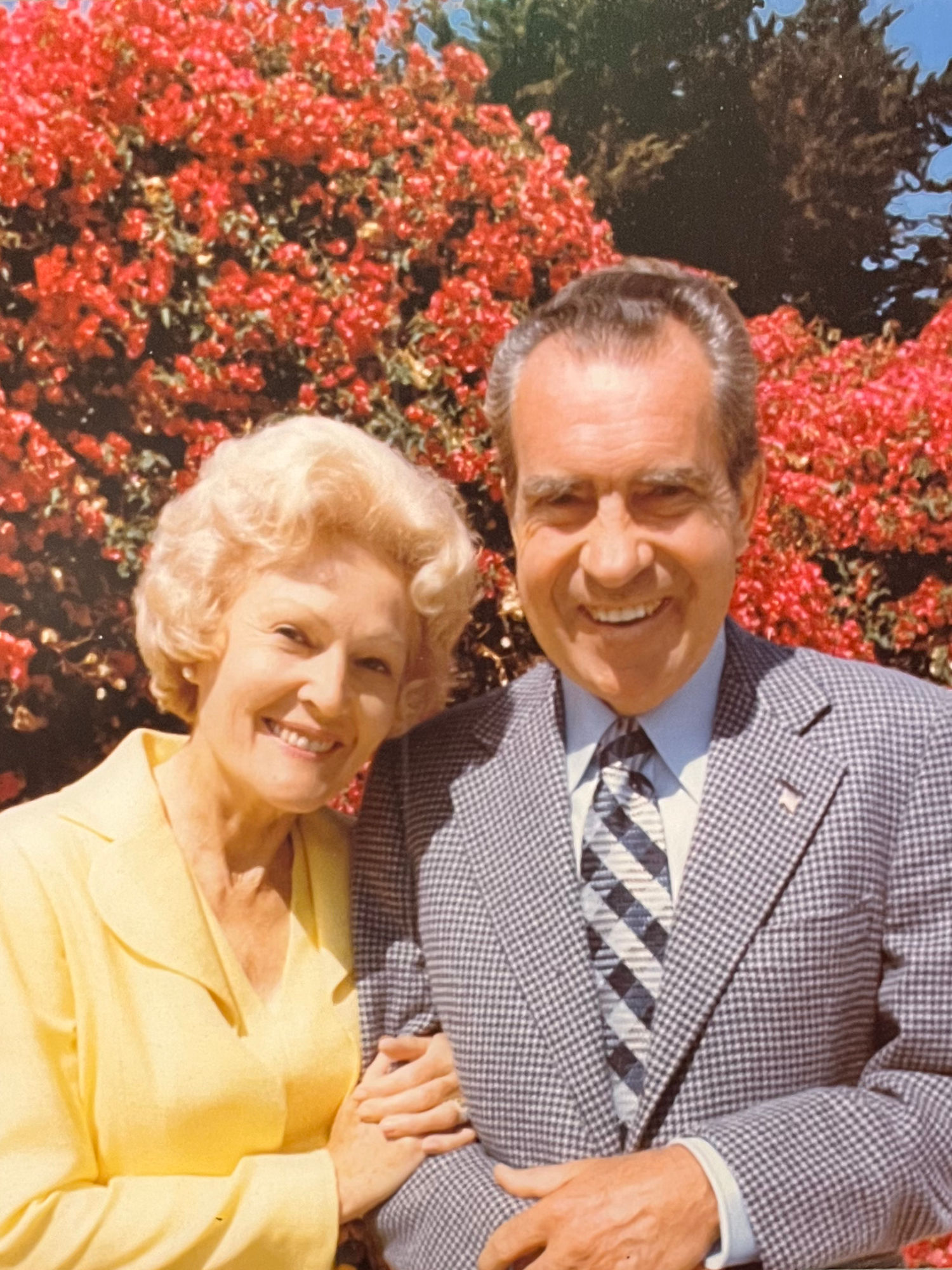
- The former President and Mrs. Nixon in the gardens at La Casa Pacifica in San Clemente, California.
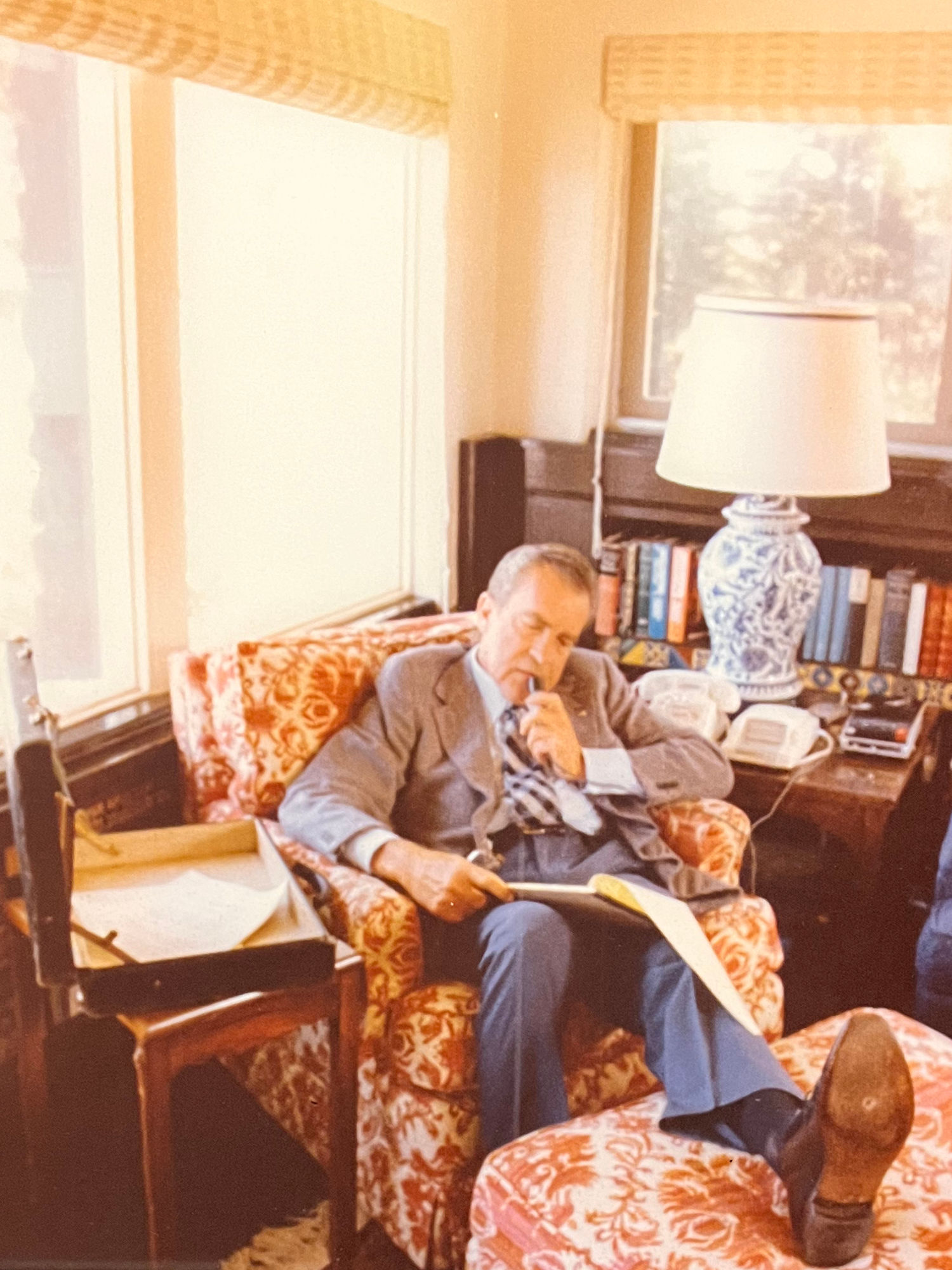
- Nixon works in his upstairs study at La Casa Pacifica, making dictations and writing notes for his memoirs.
In June of 1974, while he was on his trip to the Middle East, he suffered a recurrence of phlebitis, a condition that leads to the formation of dangerous blood clots in the legs. After his resignation, the condition worsened - with large new clots threatening to break loose and travel to his lungs or heart. The surgery to treat the former President's condition almost proved fatal.
Pat Nixon wasn't immune from the strain. In July 1976, she suffered a stroke that put her in the hospital for three weeks. Afterward she felt like she "had to become a child again so (she] could learn to use (her] arm and hand." The years in San Clemente became a time of healing for the Nixons - physically, mentally, and emotionally.
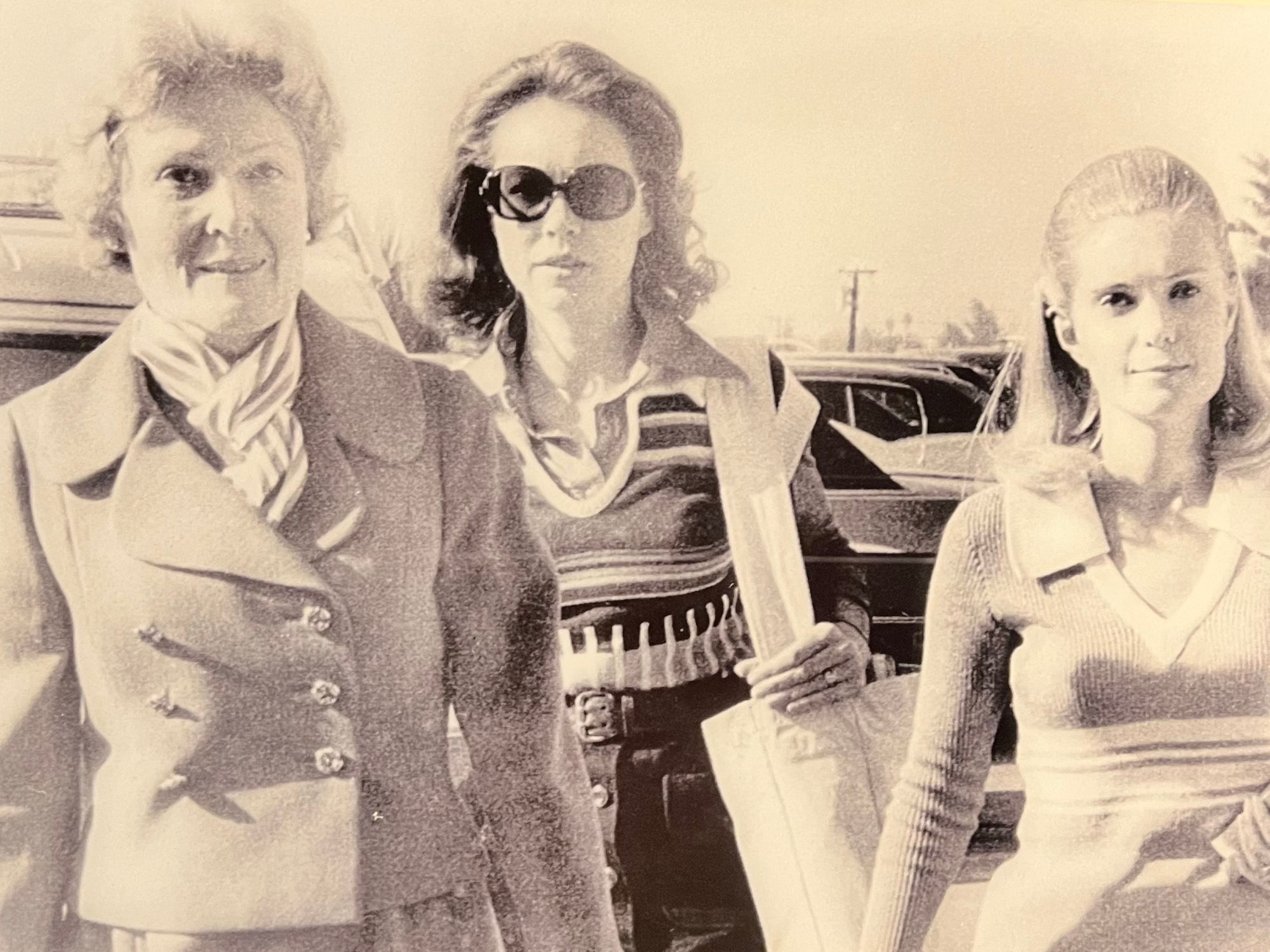
- Visit the ailing former President at a Long Beach hospital.
Some viewed President Ford's pardon of Nixon as a betrayal of justice, believing the former President should be charged and tried like other members of his administration.
However, Ford cited several reasons for his decision:
- The need to stop the country from being torn apart over Watergate
- The near impossibility of selecting an impartial jury should the former President face trial
- The eventual responsibility of whoever was President to pardon Nixon in the event of a conviction.
No words can describe the depths of my regret and pain at the anguish my mistakes over Watergate have caused the nation and the Presidency — a nation I so deeply love and an institution I so greatly respect.
- Richard Nixon on accepting the pardon, September 8, 1974
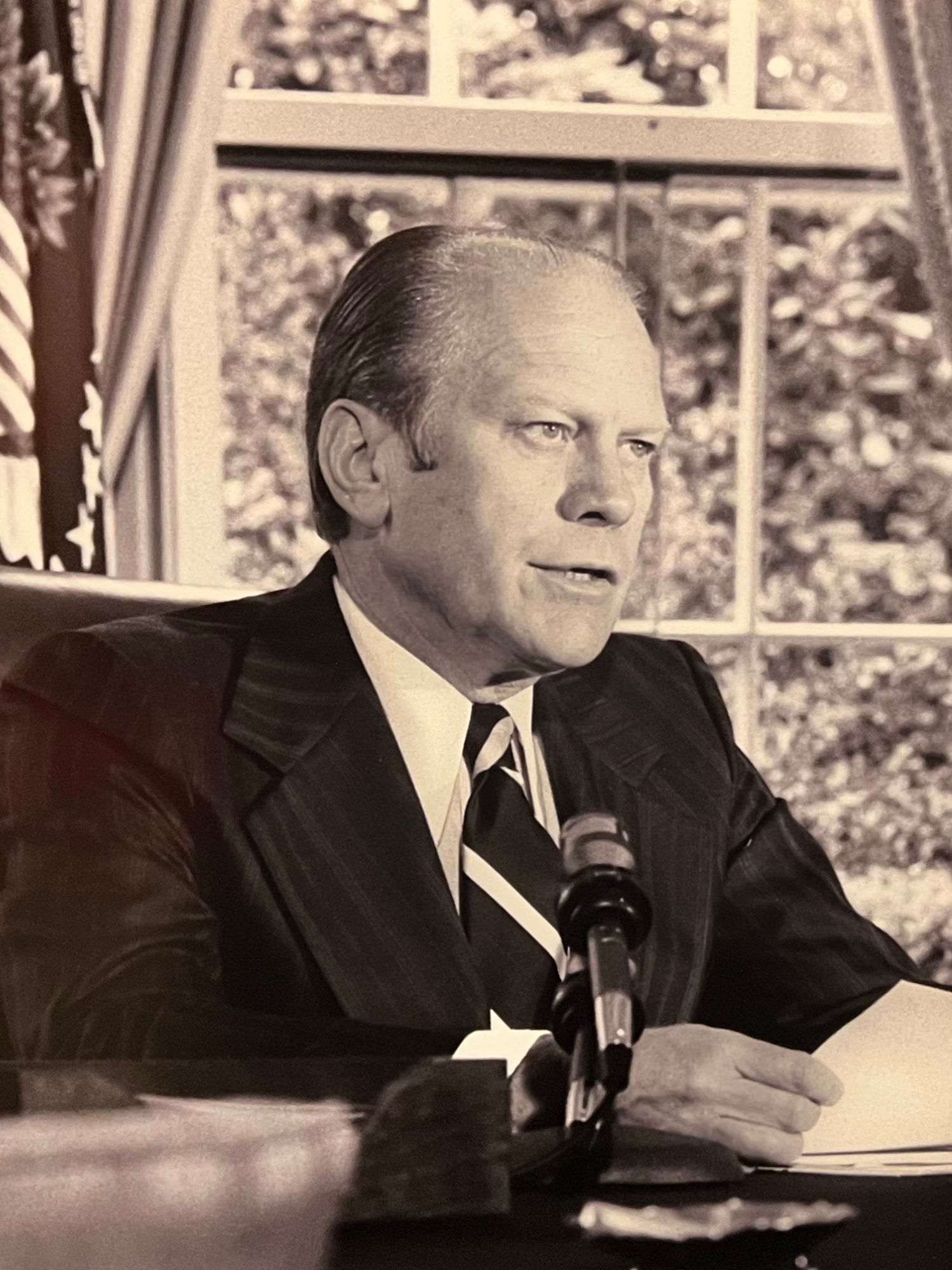
- Announcing his pardon of former President Richard Nixon for his involvement in Watergate.
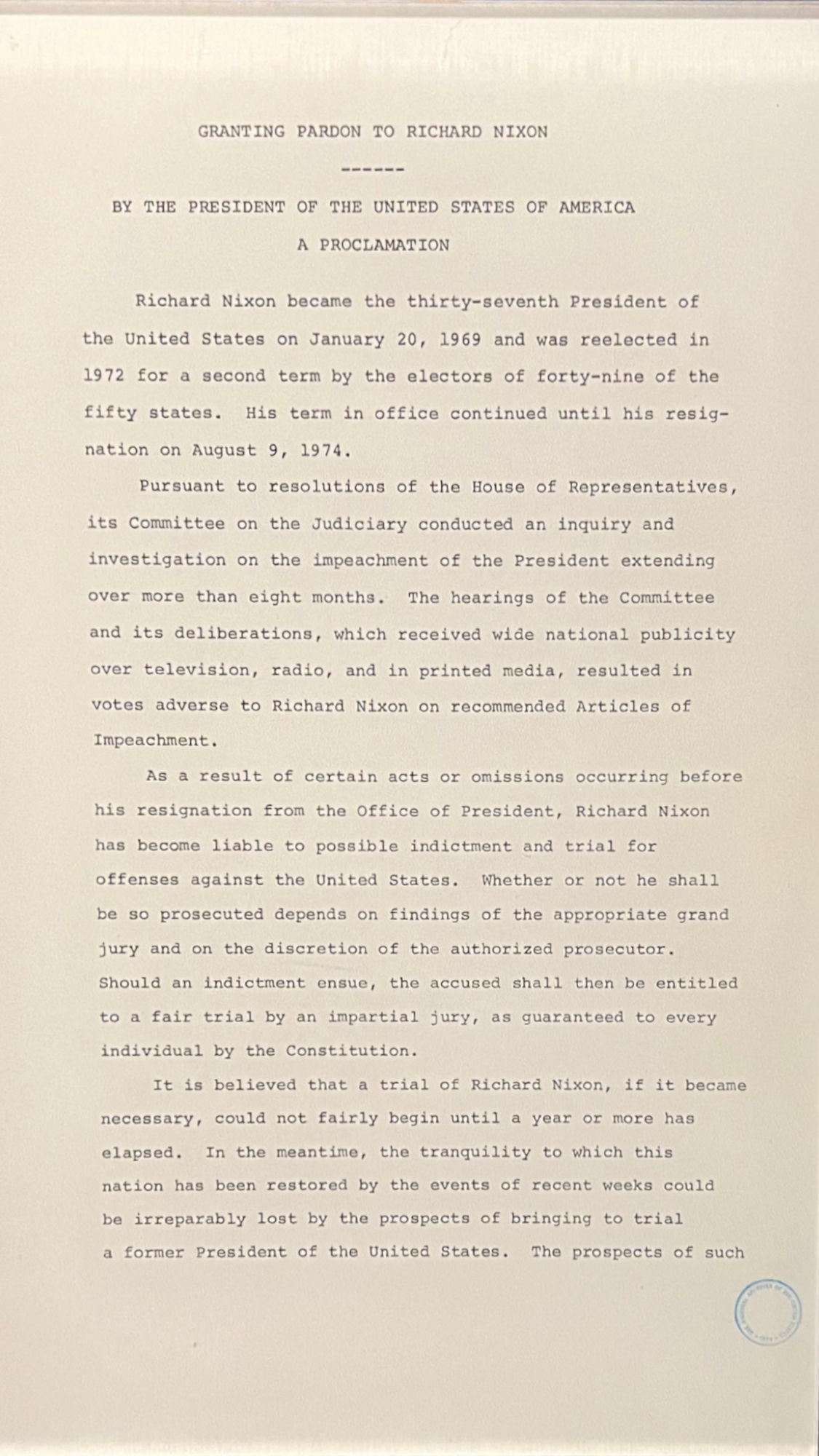
By the President of the United States of America
A Proclamation
Richard Nixon became the thirty-seventh President of the United States on January 20, 1969 and was reelected in 1972 for a second term by the electors of forty-nine of the fifty states. His term in office continued until his resignation on August 9, 1974.
Pursuant to resolutions of the House of Representatives, its Committee on the Judiciary conducted an inquiry and investigation on the impeachment of the President extending over more than eight months. The hearings of the Committee and its deliberations, which received wide national publicity over television, radio, and in printed media, resulted in votes adverse to Richard Nixon on recommended Articles of Impeachment.
As a result of certain acts or omissions occurring before his resignation from the Office of President, Richard Nixon has become liable to possible indictment and trial for offenses against the United States. Whether or not he shall be so prosecuted depends on findings of the appropriate grand jury and on the discretion of the authorized prosecutor. Should an indictment ensue, the accused shall then be entitled to a fair trial by an impartial jury, as guaranteed to every individual by the Constitution.
It is believed that a trial of Richard Nixon, if it became necessary, could not fairly begin until a year or more has elapsed. In the meantime, the tranquility to which this nation has been restored by the events of recent weeks could be irreparably lost by the prospects of bringing to trial a former President of the United States. The prospects of such ...
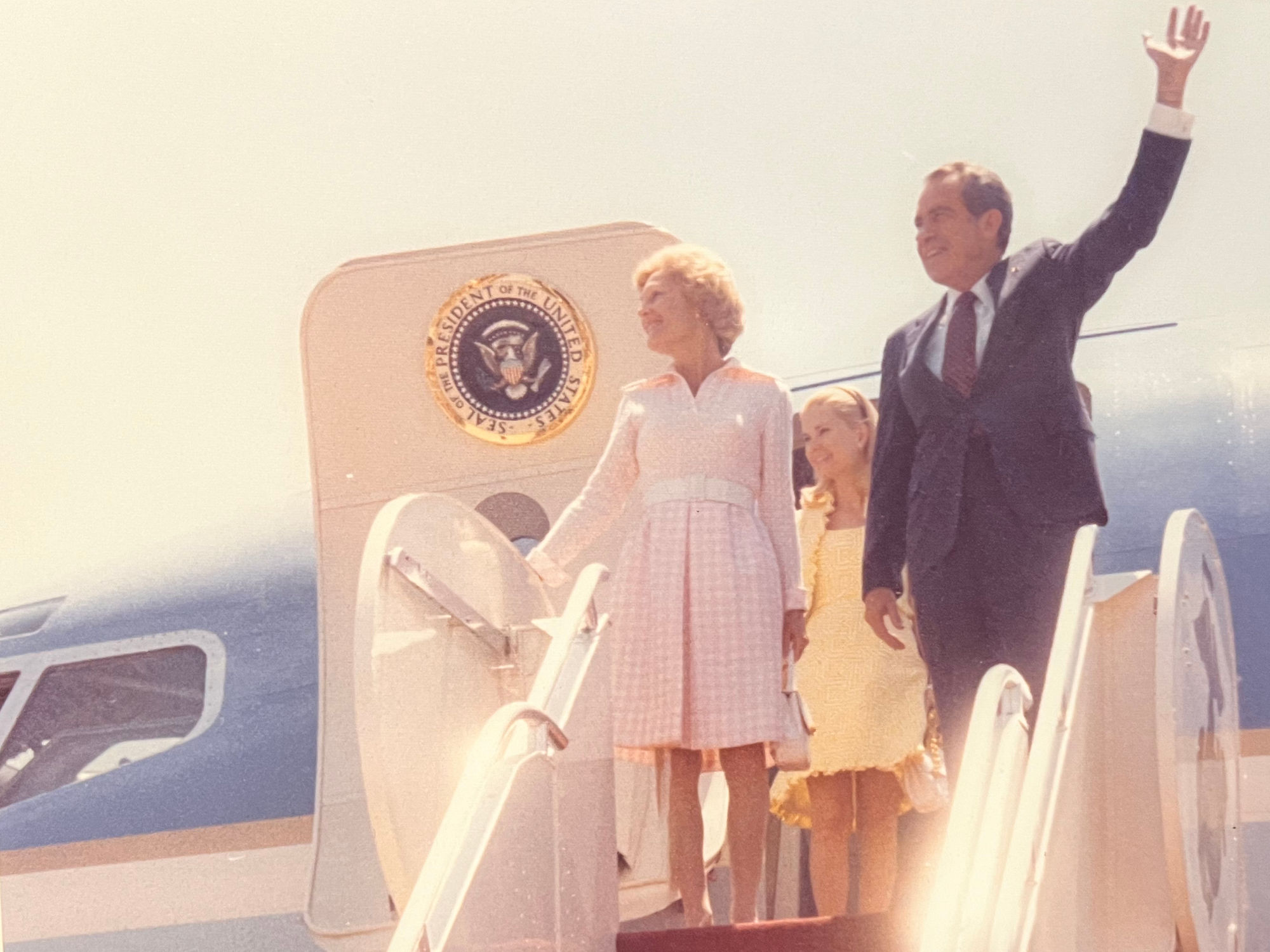
The new former President and First Lady arrive home in California - August 9, 1974
